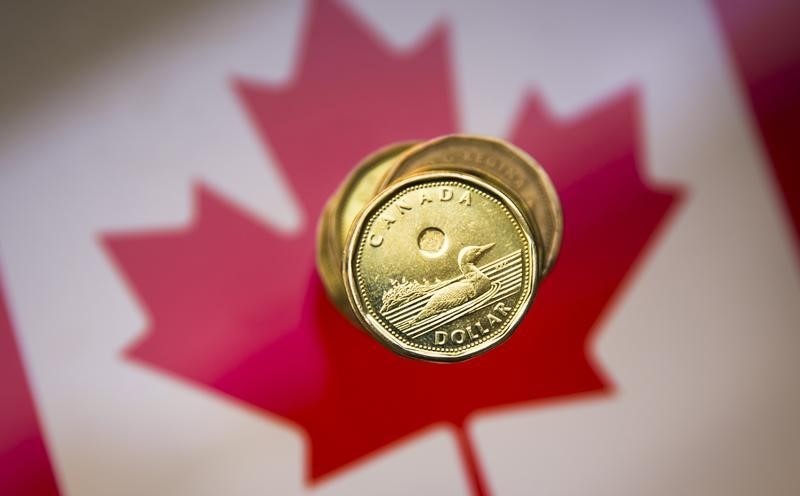* Canadian dollar at C$1.2635, or 79.15 U.S. cents
* Loonie touches weakest since April 10 at C$1.2660
* Bond prices mixed across steeper yield curve
By Fergal Smith
TORONTO, April 18 (Reuters) - The Canadian dollar weakened to a one-week low against its U.S. counterpart on Wednesday, pressured by a more dovish message on trade than some investors had expected from the Bank of Canada.
The Bank of Canada flagged more interest rate hikes would be coming after it held its benchmark rate steady at 1.25 percent, but said it did not know when or how aggressive it would need to be to keep inflation in check. central bank is signaling "a desire to maintain a bit more accommodation than would be justified by fundamentals," said Eric Theoret, a currency strategist at Scotiabank. "A lot of it seems to me to be driven by the trade piece."
The central bank worried about more protectionist global trade policies despite recent indications that prospects have improved for a deal to revamp the North American Free Trade Agreement. seems at odds with what we have seen on the NAFTA front," Theoret said.
Chances of a hike at the next interest rate decision in May slipped further below 40 percent, the overnight index swaps market indicated. BOCWATCH
At 2:20 p.m. EDT (1820 GMT), the Canadian dollar CAD=D4 was trading 0.7 percent lower at C$1.2635 to the greenback, or 79.15 U.S. cents.
The currency's strongest level of the session was C$1.2548, while it hit its weakest since April 10 at C$1.2660. On Tuesday, the loonie touched its strongest in nearly two months at
C$1.2528.
The Canadian dollar is on course to strengthen in April for the eighth time in the last 10 years, a sequence strategists link to seasonal vitality in stocks and energy products, rewarding investors who trade on market patterns. price of oil, one of Canada's major exports, was lifted by a decline in U.S. crude inventories and after sources signaled top exporter Saudi Arabia wants to see the crude price closer to $100 a barrel. crude CLc1 prices were up 2.5 percent at $68.15 a barrel, while stocks on Wall Street were supported by strong results from some marquee industrial companies. government bond prices were mixed across a steeper yield curve, with the two-year CA2YT=RR up 1.5 Canadian cents to yield 1.876 percent and the 10-year CA10YT=RR falling 13 Canadian cents to yield 2.263 percent.
The 2-year yield reached its highest intraday level since June 2011 at 1.920 percent, before the Bank of Canada announcement.
